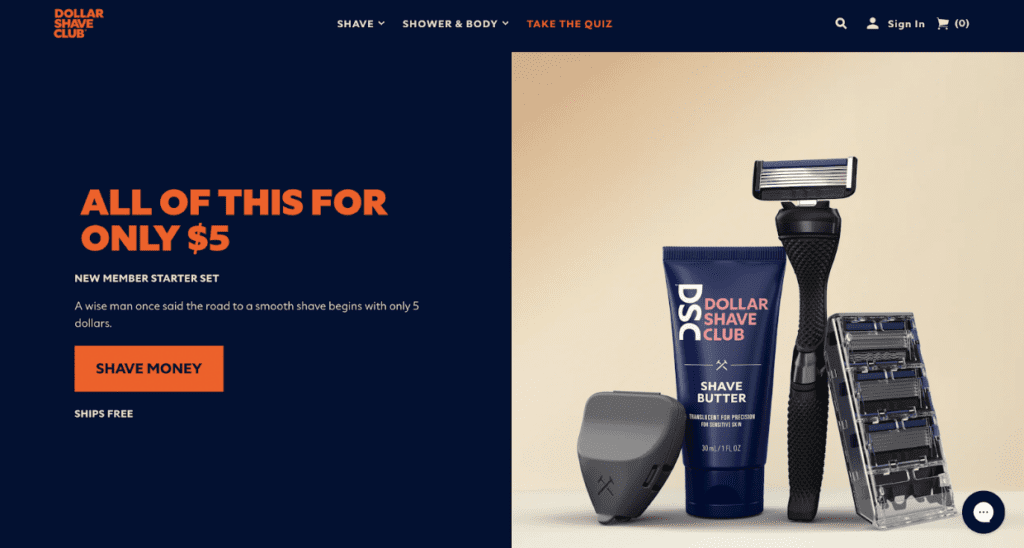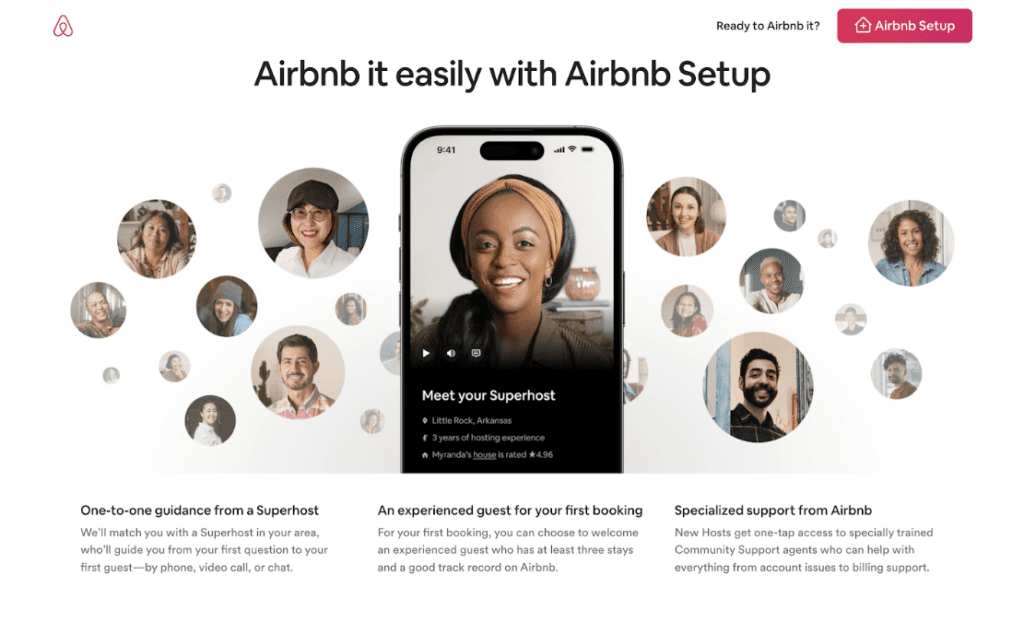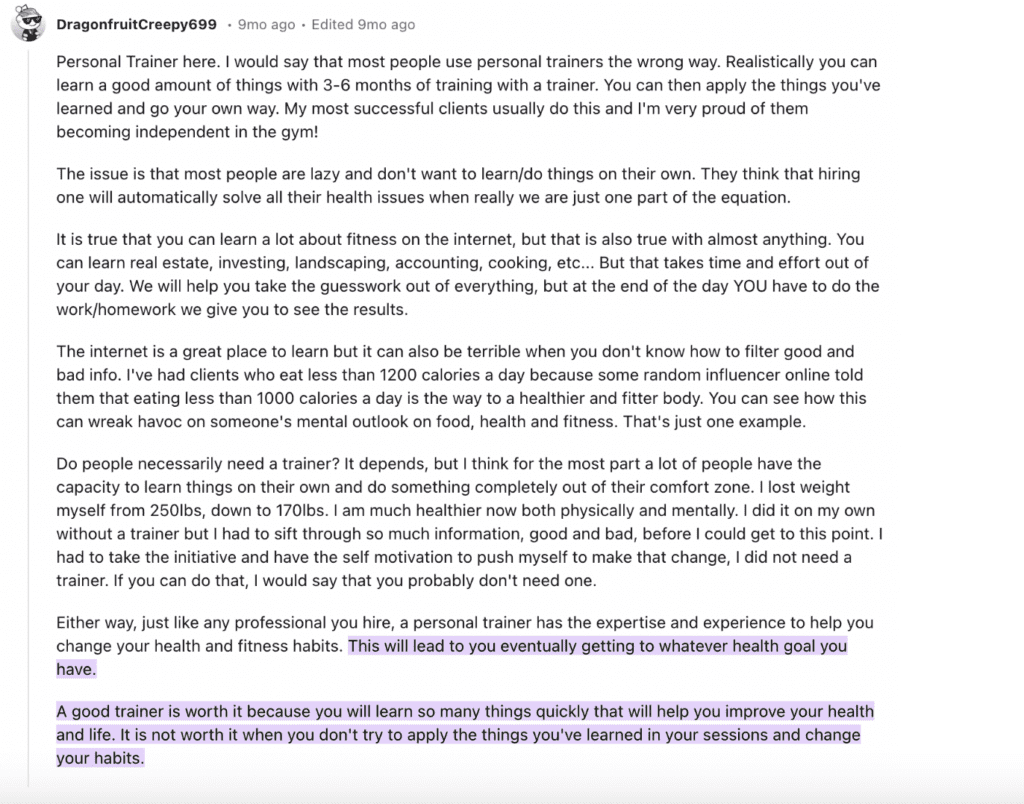So, you’ve landed here because you wanted to know more about copywriting for small businesses. Well, as an entrepreneur, it’s your not-so-secret weapon for more connection and revenue. Let me explain why!
Effective copywriting can make your brand stand out, engage your audience, and drive conversions. Imagine a prospective client or customer landing on your website and being instantly so captivated by your message that they fill out your inquiry form or buy your product. THAT is the power of good copywriting.
In this article, I’ll break down everything you need to know about copywriting for small businesses so you can start using it to your advantage ASAP. K? Let’s begin!
Hold On, What IS Copywriting?!
Copywriting is the art of crafting words that persuade and sell. It’s about creating compelling messages that motivate your audience to take action, such as buying a product, signing up for a newsletter, or following your brand on social media.
In an article with Hubspot, Lately’s CEO, Kate Bradley Chernis shared that conversion copywriting helped her and her team grow monthly recurring revenue by 240%. Pretty cool, huh? For small business owners, investing in good copywriting for your business is essential for success. That’s a hill I’ll die on.
The Different Kinds of Copywriting for Small Businesses
Your small business will use different types of copywriting to increase brand awareness, connect with prospective customers, and drive conversions. Most importantly, remember that we’re talking about HIGH QUALITY copywriting here!
- Website Copy: This includes your homepage, about page, services pages, and any other web pages for your small business website. Website copy is often the first impression target customers have of your business, so it must be clear, compelling, and aligned with your brand’s voice.
- Email Marketing: As a small business owner, you need emails that engage your subscribers and drive them to take action. Welcome emails, regular newsletter, sales campaigns – whatever it is, your email copy should be personalized and persuasive.
- Sales Pages: Dedicated pages to convert curious visitors into paying customers. A well-crafted sales page highlights the benefits of your program, service, or product, addresses potential objections, and has strong calls to action.
- Social Media: Short, impactful social media posts that engage and grow your audience. Social media copy needs to be concise, engaging, and consistent with your brand voice to attract and retain followers.
- SEO Blog Posts: Content that will rank in search engines and attract organic traffic. Blog posts should provide valuable information to your audience while using relevant keywords to improve your search engine rankings.
You don’t have to invest in ALL of these types of copywriting for small businesses right away. For example, you may start with website copywriting – an essential part of your brand identity – and eventually invest in SEO copywriting and content writing to start ranking on Google.
An experienced copywriter will be able to advise you on which types of copy to prioritize first to reach your sales goals!
Why Copywriting for Small Businesses Matters
1. Makes Your Brand Irresistible
Strong brand messaging helps your business stand out. In a crowded market, unique and engaging copy can make your brand memorable and attractive to your target audience. For example, the cheeky and relatable tone of Dollar Shave Club’s copy helped them disrupt the razor market and build a loyal customer base.

2. Improves Conversions
Good copywriting is persuasive. Selling products or services? Compelling copy can significantly improve your conversion rates, turning visitors into customers. For example, Airbnb uses trust-building elements in their copy to convert hesitant visitors into confident hosts on the platform.

3. Builds Trust and Credibility
When your copy is well-written and carries emotion, it establishes a connection with your audience. It builds trust and credibility, positioning your business – whether it’s a local business or an online one – as an authority in your industry. When your customers feel confident in your brand, they are MUCH more likely to become repeat buyers and recommend your business to others (hello, more sales + revenue! 👋)
4. Enhances SEO
SEO-friendly copywriting improves your website’s visibility in search engines. For example, using relevant keywords and optimizing meta descriptions can help your content rank higher when your target audience searches for relevant terms on Google. A great copywriter will always use SEO strategies to drive more traffic to your website.
Developing Your Unique Brand Voice
What Is a Brand Voice?
Your brand voice is the unique personality and tone you use in all your communications. It reflects your brand’s values and helps you connect with your audience on a deeper level. A consistent brand voice builds recognition and trust with your audience, making your communications more effective. AKA, it helps you improve your business success!
Define Your Brand’s Core Values
To develop your unique brand voice, start by identifying your brand’s core values. What do you stand for? What is your mission? These values should be at the heart of your brand voice. For example, if your brand values innovation and creativity, your copy should reflect that with bold, imaginative language. Want an example? Peep our brand values below!

Research Your Audience
Understand who your audience is. What are their needs, preferences, and pain points? This information will help you tailor your brand messaging and voice to resonate with them. Conduct surveys or interviews and simply interact with your target audience to hit the sweet spot between saying what YOU want to say and what THEY want to hear.
Infiltrate Your Competition
Spy movies, anyone? 😎
Just kidding, you don’t need to infiltrate anything. But you DO need to analyze your competitors to see how they communicate. Identify gaps and opportunities to differentiate your brand voice. Look at their website, social media, and marketing materials to understand their messaging and find ways to stand out.
Document Everything
Create a brand messaging guide. Document your brand’s core values, audience insights, and examples of your brand voice. This guide will ensure consistency across all your communications and serve as a reference for anyone creating content for your brand (AKA, if you hire a content marketing pro to create your social media content).
Know Your Audience
I can’t emphasize the importance of knowing your audience enough! To write persuasive copy, you need to completely understand your readers’ pain points, desires, and big dreams that keep them up at night. Because then you’ll be able to use these insights to start writing copy that speaks DIRECTLY to them and makes them feel connected to your brand.
Not sure how to get to know your audience? Here are a few ideas!
Market Research
Conduct surveys, schedule interviews with past clients, and browse on social media to gather insights about your audience. This research will help you understand their needs and preferences.
For example, imagine you’re a personal trainer who wants to improve the messaging on your website. Browsing this Reddit thread helps you understand the hesitations your audience might have before investing in your services. You may even use some of the points the commenters make in your copy!

😍 By the way, here’s an example of website copy Slade Copy House recently created for a fitness coach!
Create Buyer Personas
Write down detailed profiles of your ideal customers and/or clients. Include demographic information such as age and income levels, but focus more on the copywriting psychographics. How does your target audience decide what to buy? What kind of digital marketing content do they engage with online? What do they like to do for fun? Focus on who your target audience are as PEOPLE, not numbers.
Embrace Your Inner Stalker
Small business copywriters may be just a little bit creepy…but the truth is, market research never ends! Keep monitoring social media and other platforms to stay updated on your audience’s evolving needs and desires. Pay attention to the conversations happening in your space and continue to refine your brand messaging and content strategy to connect more with your audience.
Crafting Persuasive Copywriting for Small Businesses
Psychological Triggers
Use psychological triggers to influence your audience’s decision-making. Examples include social proof (testimonials), FOMO and scarcity (limited-time offers), and authority (positioning yourself as an expert by sharing credentials, awards, and media mentions). These triggers tap into human psychology, making your copy more compelling and persuasive.
Storytelling
Storytelling sells because it helps your audience connect emotionally with your brand. Write specific copy that makes your audience FEEL things. Share stories that highlight your brand’s values and impact. For example, tell the story of how your business started, the challenges you’ve overcome, or customer success stories. Storytelling makes your brand relatable and memorable.
Effective Headlines
Eight out of ten people will only read the headlines and skim the rest. This makes the headlines on your web pages extremely important. They need to grab attention and entice your readers to continue.
Use clear, concise language and incorporate strong power words that make them stop scrolling and take notice. For example, here’s the home page headline we crafted for our client Revival Beauty Tools.

FAQs
Do small businesses need copywriters?
Absolutely! In fact, small business copywriting services are one of the smartest investments you can make to grow your business. Working with an experienced copywriter will help you create strong brand messaging that attracts your target audience and converts them into loyal buyers. Both online and local businesses can benefit from working with a copywriting agency or a freelance copywriter.
How to write copy for a small business?
I’m going to be blunt, writing copy for small businesses is not easy. It’s not something you can learn overnight. Good copy always combines a deep understanding of your target audience, expertise on buyer psychology, and, of course, creativity and good writing skills. If you want to write your copy yourself, start with browsing websites of other businesses in your industry and take note of the things that they do well. You can also find lots of copywriting tips on my blog.
Can I see examples of copywriting for small businesses?
Smart question! Slade Copy House’s clients are diverse small businesses that care about making an impact. You can find some of our favorite client projects on our portfolio page!
Psychology-Transfused Copywriting Services for Small Businesses
If you’re missing out on clients and customers because of generic copy and finding it hard to connect with your audience while KNOWING that your brand is ready for a bigger impact, learn more about our copywriting services for small businesses! Here at Slade Copy House, we write words that make a difference for brands that do the same.